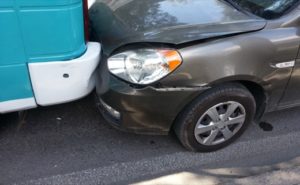
Airbags are designed to save lives, but sometimes they cause harm instead. Their deployment could also affect your insurance claim. An insurance company may assume an accident was more severe if the airbags were deployed. A car accident lawyer from our team can evaluate your specific case to determine how airbag deployment affects your car accident case and what steps you can take to protect your compensation.
How Airbag Deployment Injuries Affect Your Case
Whether an airbag is deployed can influence how the insurance company views your injuries. Adjusters are less interested in how you feel and more interested in what is provable about your situation—medical records, police reports, and, yes, airbag deployment.
According to the Insurance Institute for Highway Safety (IIHS), front airbags are supposed to be activated by moderate to severe crashes. Some new sensors even consider seatbelt use. Since airbags are meant to be triggered by higher speeds and greater impacts, adjusters will view their deployment as evidence of accident and injury severity.
However, this isn’t necessarily an indicator of your injuries. Airbags can fail to deploy in serious accidents or deploy when they aren’t meant to. Our attorneys look at the nuances, including the circumstances in which your airbags deployed and how they affected your injuries. We can then compile evidence to present insurance companies with a more accurate view of what happened.
When the Airbag doesn’t Deploy
The National Highway Traffic Safety Administration (NHTSA) reports that airbags have saved over 50,000 lives between 1987 and 2017. When they don’t deploy, they can cause serious injuries to survivors, including:
- Broken bones
- Sprains and strains
- Traumatic brain injuries
- Whiplash
- Spine and neck injuries
- Bruises and internal injuries
If you suffered from injuries after an airbag failed to deploy, don’t let the other party tell you that your accident was minor based on that single factor.
When the Airbag does Deploy
Airbag deployment can, ironically, cause similar injuries to the ones listed above. This is especially true if you were too close to the airbag, or they deployed when they shouldn’t have.
In addition, airbags can cause specific injuries, such as to the lungs or eyes due to dust and debris. If this happened to you, a lawyer can investigate the cause of the deployment. While the other driver can’t be held responsible for faulty airbags, another party could be liable.
For a free legal consultation, call (404) 888-8888
Car Accidents FAQs
Do I Need a Lawyer if I Was Hit by a Waymo Vehicle in Atlanta?What Steps Should I Take If I Suspect a Hit-and-Run in Atlanta?What Types of Compensation Can I Expect From a Car Accident Claim in Decatur?How Can a Decatur Car Accident Lawyer Help Me?What Is the First Thing to Do After a Savannah Car Accident?How Long After a Car Accident Can You Claim Injury?When Airbag Deployment Issues Point to Negligence
If your accident was caused by another driver’s negligence and they were 50 percent or more at fault, you can pursue compensation from their insurance (O.C.G.A. § 51-12-33). However, airbag failures can be a separate issue.
Consider this scenario: You are struck from behind by a driver who was texting. Your airbags don’t deploy, and you suffer a head injury. The driver’s insurance company may try to avoid some liability for your head injury by pointing out that the airbag failure played a role. While the driver caused the crash, the faulty airbag exacerbated the damage, and some liability can be assigned elsewhere.
This is how airbag deployment could affect your car accident case, by distributing liability for your injuries among more than one party. That can become frustrating when several parties point fingers at each other.
Our Attorneys Can Help Determine Liability
We can identify who was responsible for which aspects of your injuries. Faulty airbags can be due to negligence by:
- Previous vehicle owners
- Dealerships or used car sellers
- Auto shops
- Manufacturers
For instance, an airbag needs to be replaced once deployed. If you bought a used car, the previous owner, auto shop, or dealer may not have replaced the airbag. An even more unscrupulous tactic is to equip a car with a fake airbag. Any of these situations could make those parties liable for injuries.
Defective parts or mechanisms can also mean auto shops or car manufacturers share responsibility for your injuries and expenses. In one famous example, Takata airbags were the reason for a massive recall due to their risk of explosion. Whether due to a design flaw on several airbags or a unique defect in your car, mistakes that caused injury are grounds for an injury claim or personal injury lawsuit.
Airbag Cases and Product Liability
Car accident cases fall under personal injury, a broad category, while faulty airbags fall under product liability, a type of personal injury. Both typically have a two-year statute of limitations (O.C.G.A. § 9-3-33). That being said, not only can deadlines vary in any injury case, but accidents involving several parties can have their own idiosyncrasies.
If you suspect a faulty airbag played a role in your injuries after a car accident, contact our team to learn how long you have to pursue legal action against the various parties involved.
Come to Us With Questions About Airbag Cases
Bader Scott Injury Lawyers not only can help determine how airbag deployment will affect your case after a car accident, but our firm can also support you through the rest of the process. Contact us today to set up a free case evaluation!
Call or text (404) 888-8888 or complete a Free Case Evaluation form


